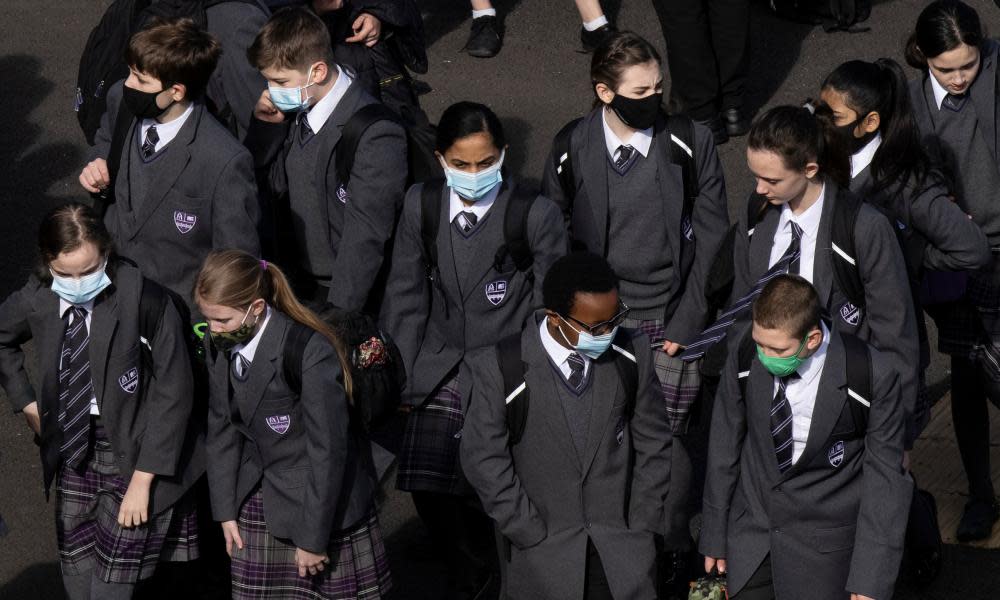Study finds long-term Covid symptoms rare in school-age children

Fewer than one in 20 Covid-positive children who experience symptoms continue to be symptomatic beyond four weeks, a new study has found.
The analysis was based on data collected between September 2020 and February 2021, coinciding with the reopening of schools in the autumn and the peak of the winter wave of the virus in the UK. It included data on 1,734 children from five to 17 years old.
The study is one of the first to offer a detailed description of Covid illness in symptomatic school-age children, and suggests long-term symptoms are rare in this age group. On average, symptoms lasted for five days in younger children (five to 11 years old) and seven days in older children (12 to 17 years old). About 4.4% experienced symptoms for four weeks or more, while one in 50 (1.8%) had symptoms lasting more than two months.
The study, based on data reported through the Zoe smartphone app by parents and carers, indicated that the most common symptoms reported in children were headaches, tiredness, a sore throat and loss of smell. There were no reports of serious neurological symptoms such as fits or seizures, impaired concentration or attention, the authors said.
In comparison, data on adults emanating from the same app showed that about one in seven adults experienced Covid symptoms lasting four weeks, while one in 20 were ill for eight weeks or longer. Symptomatic Covid in UK children was also found to be shorter in duration (six days, compared with 11 days in adults).
The study also compared children who tested positive for Covid-19 with children with other illnesses, and found that children with Covid were more likely to be ill for longer than four weeks, but at the four-week mark children with other illnesses tended to experience more symptoms.
Given the analysis was based on data collected up to February 2021, it does not indicate how these findings translate for the Delta coronavirus variant, which only began dominating in the UK from May onwards.
Dr Michael Absoud, a senior study author and senior lecturer at King’s College London, noted that existing data from Public Health England and NHS England suggests there is no evidence that Covid illness triggered by Delta in children is more severe than the previously dominant Alpha variant. “So … we wouldn’t expect the results to change,” he said, adding that the latest data is now being analysed.
The results also support the recent Joint Committee on Vaccination and Immunisation (JCVI) recommendation that children over 12 in the UK will get a vaccine only if they are clinically extremely vulnerable or live with somebody at risk, he added.
Russell Viner, professor of adolescent health at UCL Great Ormond Street Institute of Child Health and a member of the government’s Sage committee, said the data on prolonged Covid illness in children “is reassuring about the population burden of post-Covid symptoms in children and young people”.
The most recent figures from the Office for National Statistics (ONS), encompassing the four weeks up to 1 June, suggested that 10% of two-to-11-year-olds and 16% of 12-to-16-year-olds who tested positive for Covid (or suspected they had Covid) reported experiencing symptoms for at least 12 weeks.
The discrepancy between the ONS figures and the new study could be explained in part by the differences in the way the end of Covid illness was defined, said Absoud, adding that ONS data is also collected monthly and relies on individuals remembering details of when symptoms were experienced, whereas this study collected the data in real time.
US research suggests that the risk of myocarditis, a condition characterised by heart inflammation, is elevated in Covid patients 12 to 17 years old. This study did not query participants about this specifically, said senior study author Emma Duncan, professor of clinical endocrinology at King’s College London.
Overall, the data shows that some children really do experience prolonged illness with Covid, but that things get better with time, Duncan said, and added: “It’s important to think about whether there are other diagnoses – and not to assume that just because the person has had a positive test for Sars-CoV-2, that everything is due to that.”

 Yahoo Movies
Yahoo Movies 
